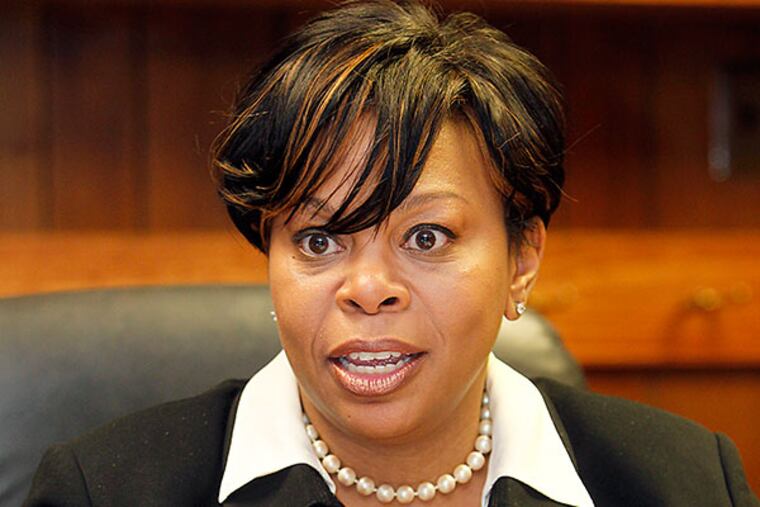Camden weighs new antiviolence program
CAMDEN The head of a Chicago-based violence prevention program toured Camden on Wednesday and said the initiative, which has been implemented in other cities, can be right for Camden as well.

CAMDEN The head of a Chicago-based violence prevention program toured Camden on Wednesday and said the initiative, which has been implemented in other cities, can be right for Camden as well.
"We view violence as a disease. Diseases spread everywhere, whether that's Chicago, whether that's Camden, whether it's a big city, whether it's a small city," Frank Perez, national director of Cure Violence, said in an interview.
He added: "Therefore, it doesn't make a difference where it is. It can be fought."
Perez and Mayor Dana L. Redd discussed the Cure Violence model with about two dozen residents during a meeting Wednesday evening at Malandra Hall in the Fairview section of the city.
The city is exploring ways to implement the publicly funded Cure Violence model to reduce youth and gang violence, using a $1.4 million Department of Justice grant.
Perez, who met with elected and school officials earlier in the day, listed cities where he said the Cure Violence model has worked, including Chicago, New York, Philadelphia, and Baltimore, as well as cities in South Africa.
Camden's version of the initiative will target neighborhoods such as Whitman Park, one of the most crime-ravaged communities, along with Centerville, Liberty Park, and Lanning Square, according to a spokesman for the mayor, Robert Corrales.
The model entails hiring and training "interrupters" from the local community to mediate gang disputes before they escalate, and help young people resolve conflicts and change behaviors.
In other places, interrupters have included former gang members, drug dealers, and those with other kinds of violence in their past.
Perez said it's important that "interrupters" and other outreach workers are "credible messengers."
"Just like in any country in the world where you might be fighting any kind of disease, you want to use people from the community, people from the villages, who are credible," he said before his session with members of the Community Congress from areas the initiative plans to tackle. The city-backed group has members in each of Camden's 21 neighborhoods.
Reporters were not allowed into the meeting.
Perez said other components such as public education and partnerships with the faith-based community and law enforcement are essential, too.
The Camden outreach is in the preliminary stages. City officials plan to hire and train the interrupters by early next year and roll the program out in the spring, Corrales said.
In 2011, the city's crime rate was five times the national average, according to CQ Press' annual ranking of 432 cities based on 2011 rates of reported crimes in a number of categories, including murder, rape, robbery, aggravated assault, and burglary.
Last year, Camden recorded 67 homicides, its most ever. Most of the city's homicides are linked to drugs or gangs, or both.
In 1995, Gary Slutkin, an epidemiologist, founded CeaseFire-Chicago, using techniques he employed during years combating the spread of AIDS and other diseases in Africa. The program later became Cure Violence.
The Chicago program was created in conjunction with the University of Illinois at Chicago. In Slutkin's view, violence should be treated like an epidemic and could be prevented by halting the behavior at its source, according to the organization.
In Philadelphia, a similar program called Philadelphia CeaseFire identifies young people who have been shot, or are at risk of being shot, and offers them guidance and counseling from the "interrupters." The program is affiliated with Temple University Hospital.
Micah Khan, a managing member of Cease Murder Diplomats, a Camden nonprofit that aims to stem the homicide rate in the city by providing mentoring and intervention to young men and women and the formerly incarcerated, said the Cure Violence model could work.
"Who better to intervene on violence than those individuals who have lived it and experienced violence in their neighborhoods," he said before the meeting.